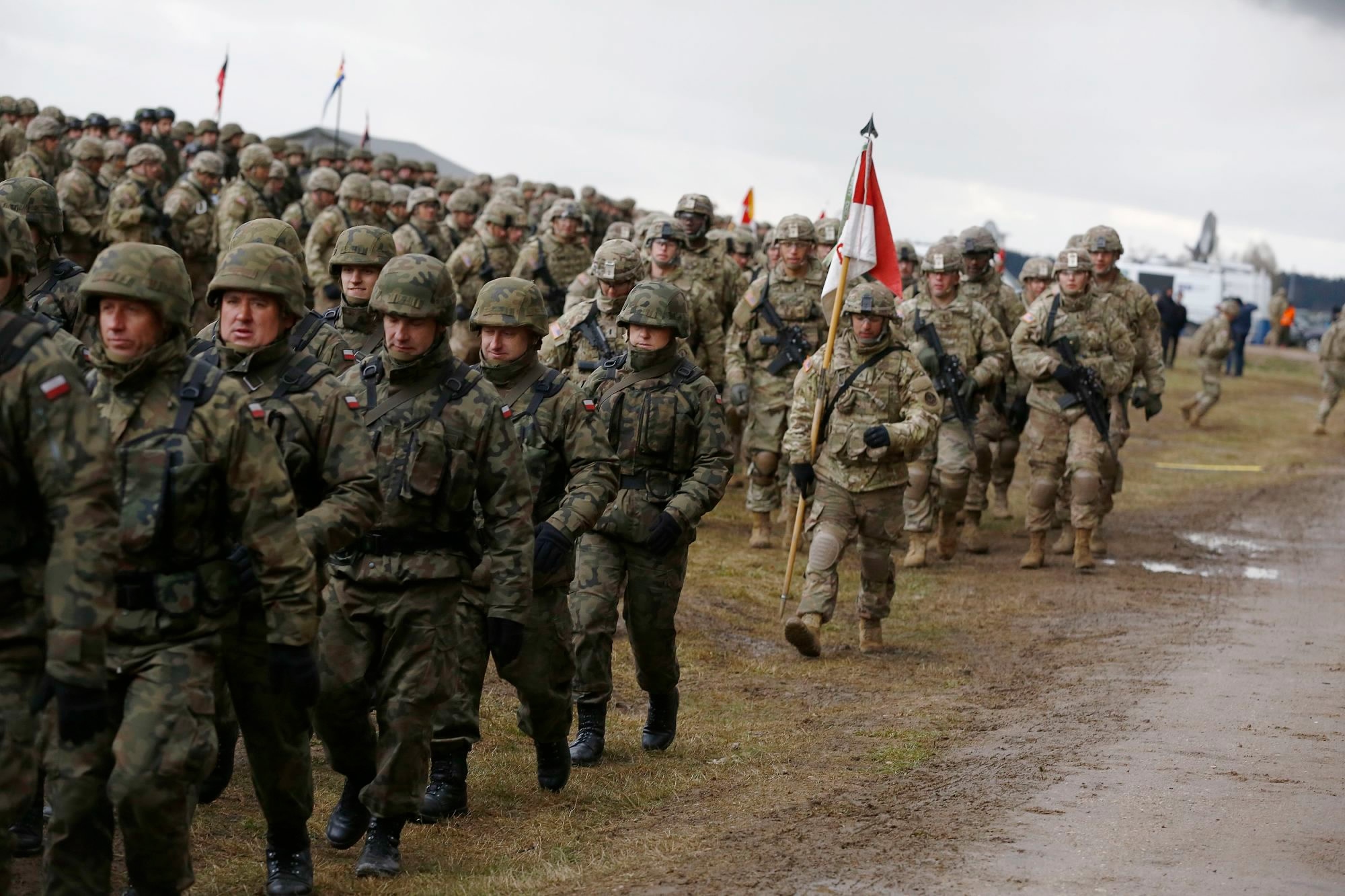Guest commentary by Hichem Karoui
Welcoming the NATO deployment to Poland on April 13, President Andrzej Duda said the alliance’s military presence would help deter attacks on his country.
In Washington, President Donald Trump said NATO “is no longer obsolete,” a reversal from a position he took during his 2016 campaign.
NATO, or the North Atlantic Treaty Organization, was formed in 1949. In the four decades that followed, the alliance employed different “strategic concepts,” such as Mutually Assured Destruction, to make war with the Soviet Union unthinkable.
The Cold War came to a close with the collapse of the Soviet Union, bringing to an end of the threat that NATO was formed to address. Membership was opened to former enemies of the Warsaw Pact.

Polish and U.S. soldiers attend welcoming ceremony for U.S.-led NATO troops at polygon near Orzysz, Poland, April 13, 2017. / CFP Photo
Critics have pointed to NATO’s inefficiency, internal divisions, and reliance on American military might. Trump, now the US commander-in-chief, was among NATO’s loudest detractors. Another was former US Defense Secretary Robert Gates, who once said "future US political leaders, those for whom the Cold War was not the formative experience that it was for me, may not consider the return on America’s investment in NATO worth the cost."
What NATO’s purpose is in a post-Cold War world is hard to say. Its members disagree on several key issues, such as which groups to consider as terrorists.
In the aftermath of the 9/11 attacks, Russian President Vladimir Putin raised the specter of Russian membership in NATO. After the Rome summit in May 2002, the US-led alliance met the Kremlin halfway with the creation of the NATO-Russia Council.
Russia enjoyed decision-making responsibilities in “military crisis management, counterterrorism, and the non-proliferation of Weapons of Mass Destruction.”
Moscow also offered to provide practical support to the NATO-led International Security Assistance Force in Afghanistan.
At the Munich Conference in 2007, Putin said Russia wanted to play a greater role in the international arena.
But the Libyan crisis showed the limits of NATO’s cooperation with Russia. Moscow sought to resolve the crisis peacefully. Yet, unilateral geopolitical decisions by NATO and the solo implementation of UN Security Council resolution 1973 excluded Russia from the process.
What happened in Georgia, then in Crimea and Donbas, may be seen as Russia’s reaction to NATO leaving Moscow out. The same goes for Syria.
Russia was left with two options: live with NATO or challenge the alliance. The Kremlin has increased its focus on Europe and building a strong and self-reliant state.
But since the inclusion of Crimea into the Russian states in 2014, Baltic states have voiced fears over Russia’s threat to their sovereignty. This has encouraged pro-Western sentiment, increasing support for institutions such as NATO and the EU. But will NATO go to war with Russia over parts of Eastern Europe?
Some observers in Europe believe uncertainty over Russia and NATO, particularly as a result of the election of Donald Trump, may further raise tensions and lead to a deterioration in trust in the region.
"Their exercises are larger, more aggressive than they have been across the last ten years,” former NATO commander in Europe Gen. Philip Breedlove told the Polish Press Agency ahead of the troop buildup in Poland.
"I still believe Russia is an existential threat to the United States and for that same matter to the West,” he said.
NATO’s relevance in a world without the Soviet Union has been in question for years. Today, many wonder whether NATO’s comeback – a result of Russia’s actions in Europe and the Middle East – will lead to a new Cold War era.
(Hichem Karoui, is Non-Resident Senior Fellow at the Center for China and Globalization based in Beijing and a diplomatic adviser. The article reflects the author’s opinion, not necessarily the view of CGTN.)
6892km










